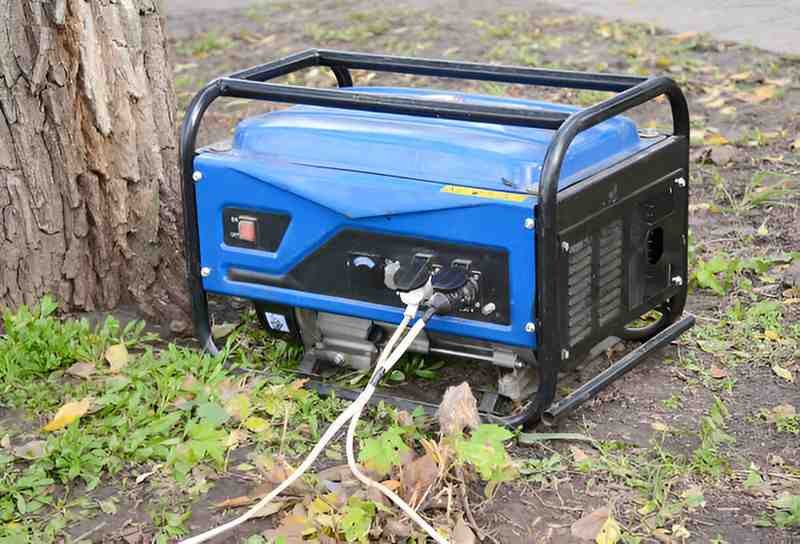When I first started exploring the world of RV travel, I quickly realized that power needs are as essential as food and water. Whether you’re off the grid or parked at a campsite, a reliable portable generator can make or break your adventure. But with countless options on the market, how do you choose the best one? I’ve spent hours researching, comparing, and learning from personal experience to help you make an informed decision. Let’s dive into the details.
Table of Contents
Why Do You Need a Portable Power Generator for Your RV?
Portable generators provide the flexibility to power your RV’s appliances, devices, and essential systems when shore power isn’t available. Here are the main reasons to invest in one:
- Off-Grid Adventures: If you love camping in remote areas, a generator ensures you’re not left in the dark.
- Backup Power: Unreliable campground power grids can fail, making a generator your lifeline.
- Appliance Use: Air conditioners, microwaves, and refrigerators need consistent power to function.
- Charging Devices: Keep your phones, laptops, and other electronics powered.
Factors to Consider When Choosing a Portable Generator
1. Power Output
Power output determines what the generator can run. Generators are rated in watts, with two key numbers:
- Starting Watts: The power required to start appliances.
- Running Watts: The power needed to keep them running.
For RVs, you’ll typically need at least 2,000-4,000 watts, depending on your appliances.
2. Fuel Type
Portable generators use different fuel types. Each has pros and cons:
| Fuel Type | Pros | Cons |
|---|---|---|
| Gasoline | Readily available | Short shelf life; flammable |
| Propane | Cleaner-burning; long shelf life | Bulkier storage; lower energy output |
| Diesel | Efficient; widely available | Noisy; heavier |
| Solar | Quiet; eco-friendly | Weather-dependent; lower output |
3. Noise Level
Noise is a significant factor, especially in quiet campgrounds. Look for generators with a noise rating below 60 decibels (dB) for a more pleasant experience.
4. Portability
Consider the generator’s weight, size, and ease of transport. Wheels and handles can make a big difference when moving it around.
5. Fuel Efficiency and Runtime
A fuel-efficient generator saves money and reduces refueling frequency. Check the runtime at 25% and 50% loads to gauge its efficiency.
6. Inverter vs. Conventional Generators
Inverter generators are more expensive but provide cleaner and more stable power, ideal for sensitive electronics. Conventional generators are more affordable but may not suit all RV needs.
Top Portable Generator Brands for RVs
Here are some trusted brands that consistently deliver quality products:
- Honda: Renowned for reliability and quiet operation.
- Champion: Affordable yet powerful options.
- Yamaha: High-quality inverter models with great efficiency.
- Westinghouse: User-friendly designs and solid performance.
Comparing Popular Portable Generators for RVs
To help you decide, here’s a comparison of some top-rated models:
| Model | Starting Watts | Running Watts | Noise Level (dB) | Fuel Type | Runtime @ 50% Load | Weight (lbs) |
|---|---|---|---|---|---|---|
| Honda EU2200i | 2,200 | 1,800 | 48 | Gasoline | 8.1 hours | 47 |
| Champion 3400-Watt | 3,400 | 3,100 | 59 | Dual-Fuel | 7.5 hours | 95 |
| Yamaha EF2000iSv2 | 2,000 | 1,600 | 51.5 | Gasoline | 10.5 hours | 44 |
| Westinghouse iGen4500 | 4,500 | 3,700 | 52 | Gasoline | 18 hours | 98 |
How to Calculate Your Power Needs
To avoid underestimating or overbuying, follow these steps:
- List Your Appliances: Write down all the devices you plan to use.
- Check Wattage: Look for the wattage on each appliance’s label.
- Add Starting and Running Watts: Total the watts for simultaneous use.
- Account for Surge Watts: Add a buffer for startup surges.
Example Calculation
| Appliance | Starting Watts | Running Watts |
|---|---|---|
| Air Conditioner | 2,200 | 1,500 |
| Refrigerator | 600 | 200 |
| Microwave | 1,000 | 1,000 |
| Phone Charger | 0 | 10 |
| Total | 3,800 | 2,710 |
In this example, you’d need a generator with at least 3,800 starting watts and 2,710 running watts.
Tips for Using a Portable Generator Safely
- Place It Outdoors: Always run generators outside to avoid carbon monoxide poisoning.
- Use a Surge Protector: Protect sensitive devices from power surges.
- Refuel Carefully: Turn off the generator and let it cool before adding fuel.
- Perform Regular Maintenance: Clean filters, check oil, and inspect spark plugs regularly.
- Secure the Generator: Use locks to prevent theft.
My Personal Recommendations
If you prioritize quiet operation and reliability, go for the Honda EU2200i. It’s compact, efficient, and perfect for smaller RVs. For larger setups, the Westinghouse iGen4500 offers excellent runtime and power output without breaking the bank.
For eco-conscious travelers, solar generators like the Jackery Explorer 1000 are worth considering. While they have limitations in cloudy weather, they’re silent and sustainable.
Conclusion
Choosing the best portable power generator for your RV doesn’t have to be overwhelming. Focus on your power needs, preferred fuel type, noise tolerance, and budget. By considering these factors and reviewing trusted models, you’ll find a generator that keeps your adventures powered and stress-free. Remember, the right generator is an investment in your comfort and safety on the road.





